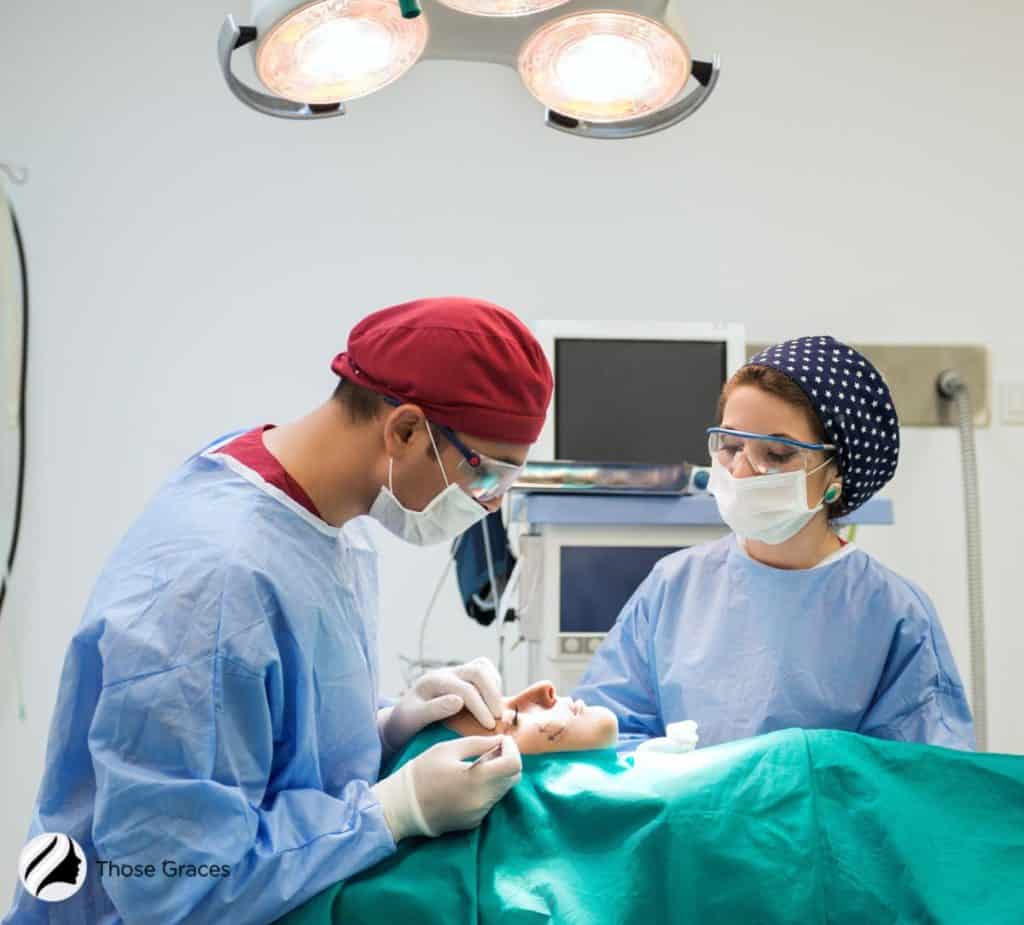Eager to know how plastic surgery helps with confidence? Read on…
As a beauty expert, I’ve discovered a captivating study revealing not only a deep correlation between a person’s self-esteem and the probability of seeking cosmetic surgery but also the aftermath of it – a complete transformation [1].
In this article, I’ll discuss how plastic surgery can amplify your innate confidence, suggesting it might be the solution you’ve been seeking.
Continue reading to embrace this transformation and discover the best version of yourself.
Key Takeaways
- When done correctly, cosmetic procedures can significantly boost an individual’s self-esteem.
- Setting realistic expectations for plastic surgery is crucial for satisfaction.
- Understanding potential psychological impacts ensures a positive experience.
8 Ways How Plastic Surgery Helps with Confidence
Does the face in the mirror reflect the confidence you feel inside? For many, plastic surgery offers a bridge between self-perception and physical appearance.
It’s not just about looking good but feeling empowered, authentic, and harmonious in one’s body.
Here are 8 ways plastic surgery helps with confidence…
#1 Reclaims Control
Plastic surgery offers people a path to reclaim control over their physical appearance, contributing to their confidence and self-esteem.

Feeling more empowered, individuals will change how they live, feel about life, approach their futures, and deal with others…
When your outward perception shifts, genuine transformation ensues.
The result is better harmony and satisfaction with yourself and life in general.
For optimal assistance, experts such as Dr. Neinstein NYC have helped many people achieve this result, arming them with a new life of hope.
#2 Builds Self Esteem
The confidence gained from plastic surgery often extends beyond physical appearance.
Given a newfound comfort with their exterior selves, many people find their social interactions and personal relationships improve.
Moreover, it can enhance one’s ability to express one’s true identity, which improves a deeper level of confidence – self-esteem.
While the procedures can bring about significant physical changes, the psychological effects can be even more profound.
In addition, confidence in one’s ability can also result in greater happiness and improved mental health.
#3 Boosts Physical & Mental Well-being
Post-procedure, many individuals report reduced anxiety and improved mood.

These improvements can stem from both the procedure’s outcome and the decision to take active steps toward self-improvement.
It’s important to note that while plastic surgery can boost confidence, it is not a standalone solution for mental health concerns.
The decision to undergo such procedures should be made in consultation with professionals who can provide holistic advice.
#4 Empowers Personal Choice
Plastic surgery enables individuals to make personal choices about their physical appearance.
It can empower them by bringing about changes they’ve long desired, fostering a sense of control and autonomy.
Amidst these discussions, it’s also crucial to address other health and beauty challenges. “What Every Woman Needs To Know About Dealing With Severe Eczema” is an important topic that resonates with many, as skin conditions can profoundly impact one’s self-esteem and daily life.
For some, this might be correcting a perceived flaw, while it could mean enhancing an already appreciated feature for others.
#5 Presents a Caring & Conductive Environment
The environment in which plastic surgery is carried out dramatically impacts the outcome.
A caring, understanding, and supportive staff can enhance the patient’s journey, easing their anxieties about the procedure.

Comprehensive aftercare is equally essential, as it can aid in smooth recovery and help patients adjust to the changes, further cementing their confidence in their decision.
#6 Presents Optimal Ethics & Safety
Plastic surgery, like any medical procedure, requires attention to safety and ethical considerations.
The safety of the procedure and its suitability for the patient are paramount.
Ethical considerations involve ensuring the patient is fully informed about the procedure, potential risks, and realistic outcomes.
Such transparency fosters trust, making patients feel secure and confident about their decisions.
#7 Increases Patient Satisfaction
Technological advancements have considerably improved the field of plastic surgery, leading to safer procedures with more predictable results.
These enhancements can offer more options to patients and help surgeons provide personalized care.
The birth of less invasive procedures and more refined surgical tools have increased patient comfort and satisfaction.
#8 Presents a Holistic Approach
While plastic surgery can significantly boost confidence, it’s essential to remember that confidence isn’t solely tied to physical appearance.
It also involves mental and emotional well-being.
Complementing physical changes with healthy habits like regular exercise, a balanced diet, and mental health care can result in a more holistic and lasting boost to confidence.
After all, the journey to self-confidence is multifaceted, and every step forward counts [3].
Before you delve into the next section, study this video by Dr. Huffaker on confidence and plastic surgery here:
The next section will discuss a pressing problem with self-esteem and how plastic surgery can help – body dysmorphia…
The Influence of Plastic Surgery on Individuals With Body Dysmorphia
Those grappling with deep-rooted self-esteem issues often hope that a plastic surgery transformation will cure their internal struggles.
However, while a physical makeover can be a stepping stone to a brighter self-view, it’s not always the complete answer to long-standing negative self-perceptions.
A change in appearance can instigate positive feelings, but real transformation lies in addressing core beliefs.
Additionally, when discussing self-esteem’s dance with plastic surgery, Body Dysmorphic Disorder (BDD) invariably enters the conversation.
As detailed by Holly R. Nicewicz and Jacqueline F. Boutrouille in their StatPearls study, BDD—sometimes known as dysmorphophobia—is when someone is obsessively focused on what they perceive as defects in their appearance, often unseen or minor to others.
This might manifest in time-consuming behaviors like constantly checking one’s reflection or even skin picking.
Interestingly, concerns frequently revolve around areas like the skin, hair, or nose but can encompass any body part.
Historical records show that “dysmorphophobia” dates back to 1891 and describes individuals who felt flawed despite no evident physical deformities.
And that’s why you need qualified professionals (see next)…
The Need for Qualified Professionals
The journey of plastic surgery is sensitive, requiring the involvement of qualified professionals.

Selecting a knowledgeable and understanding surgeon is paramount to achieving the desired results.
In addition, patients should be encouraged and guided to ensure that their decision to undertake such a procedure stems from a genuine place of self-love and a desire not rooted in societal pressures but in self-improvement.
With professional guidance, someone can seamlessly blend physical aspirations with emotional well-being, leading to a holistic transformation.
Next, explore some frequently asked questions & curb that wondering mind…
FAQs
How does plastic surgery boost self-esteem?
Are there any psychological drawbacks to cosmetic procedures?
Is it common for people to seek cosmetic enhancement for confidence?
Final Thoughts
Discerning how plastic surgery helps with confidence is no mean feat…
After all, the journey to self-confidence can take many routes, and plastic surgery can be a meaningful part of that journey for some.
While representing a personal decision, it represents a commitment to enhance one’s self-image and improve one’s overall quality of life.
In fact, each individual’s path is unique, as is their relationship with confidence and self-esteem.
With this in mind, remember that every journey is valid, and every step taken toward self-confidence is a step in the right direction.
Resources
1. Mohammed DI, Ibrahim RH. Exploring the impact of psychological factors on cosmetic surgery acceptance: A cross-sectional study. Informatics in Medicine Unlocked. 2023;39:101231.
2. Dr. Ryan Neinstein, MD – Cosmetic, Plastic & Reconstructive Surgery Specialist in New York, NY | Healthgrades [Internet]. www.healthgrades.com. Available from: https://www.healthgrades.com/physician/dr-ryan-neinstein-cvocz
3. My journey to building self confidence [Internet]. www.linkedin.com. [cited 2023 Aug 24]. Available from: https://www.linkedin.com/pulse/my-journey-building-self-confidence-talia-ndlovu/
4. Castle DJ, Honigman RJ, Phillips KA. Does cosmetic surgery improve psychosocial wellbeing? The Medical journal of Australia [Internet]. 2002;176:601–4. Available from: https://www.ncbi.nlm.nih.gov/pmc/articles/PMC1851945/


